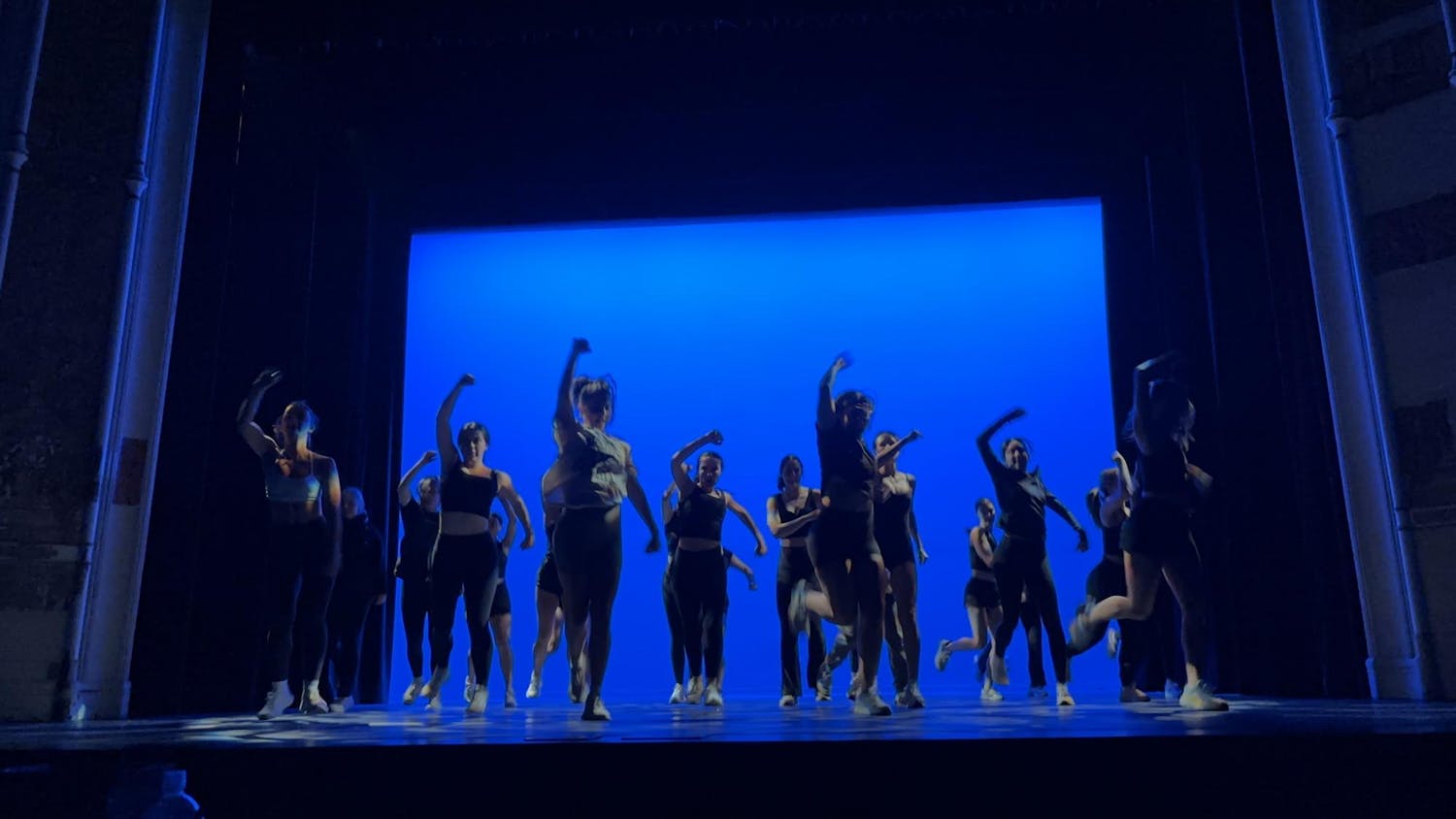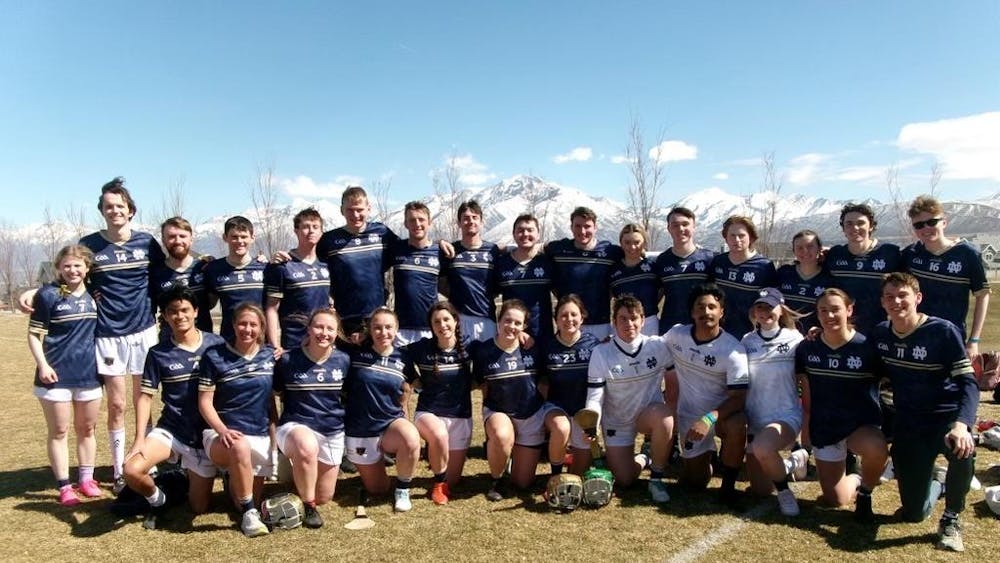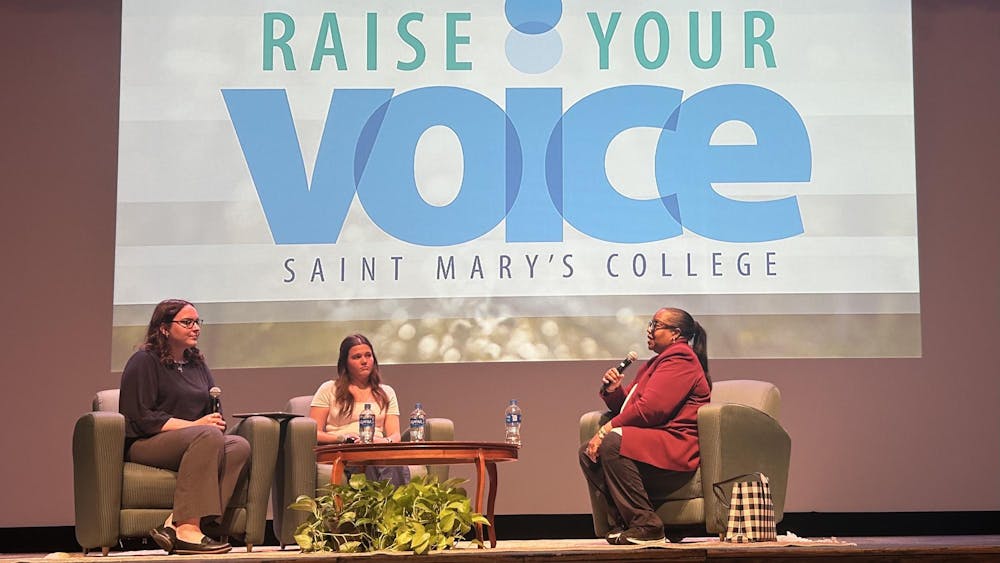As the government shutdown stretches into its second week, finance experts advised Notre Dame students on how to seize control of their generation's financial future on Wednesday in a discussion panel titled "Mortgaging the Future: Millennials' Declining Share of the Economic Pie."
Panelists James Dunne, a Notre Dame trustee and senior managing partner at Sandler O'Neill and Partners, Stanley Druckenmiller, a philanthropist and former president of Duquesne Capital and Timothy Fuerst, a Notre Dame economics professor and economic adviser at the Federal Reserve Bank of Cleveland, discussed the growing economic disparity between the older generation and the younger generation.

The panel was held Wednesday in Washington Hall by the College Democrats, College Republicans, College of Arts and Letters, student government and the Investment Office.
"There's a lot of guilt here. It's not a Republican or a Democrat issue, it is an economic issue about your children's and your future," Dunne said. "I believe we have a 10-year period of time, literally 10 years, to address this issue. And if we don't, we'll be devastated. It'll be to you and your children."
Druckenmiller said the government's recent sequester to balance the budget has hurt the younger generation because it resulted in cuts to programs such as Head Start and Food Stamp instead of programs such as Medicare and Social Security.
Druckenmiller said the growing popularion of seniors over age 65 is another problem plaguing the younger generation. The U.S. population will add 11,000 seniors each day for the next 23 years, Druckenmiller said.
"Seniors have been getting a larger and larger share of the economic pie for 30 or 40 years because of baby boom," he said.
Druckenmiller also said despite the increase in government expenditures and entitlements in the past 60 years, most benefits went only to seniors. For example, he said the poverty rate for seniors has fallen from 30 percent to nine percent whereas the rate has remained largely unchanged for the young.

What should really anger us is that an average 65-year-old will benefit $327,400 from the government whereas people not yet born will lose $420,600, with a net difference of almost $700,000, Druckenmiller said.
For the next $1 trillion increase in expenditure, $875 billion is projected to go to seniors while only $6 billion will be allocated to their children, he said.
Druckenmiller said students must act if they are to regain their piece of the pie.
"My generation, we brought down the president in the 60's because we didn't want to go into the war against Vietnam," he said. "People say young people don't vote, young people don't care. I'm hoping after tonight, you will care. There is a clear danger to you and your children."
Dunne said Notre Dame students can be especially powerful advocates for the rights of their generation..
"This is going to be incredibly bad for the people who can least afford it. It is going to be painful," he said. "That is why we need some leadership from people like Notre Dame students to put politicians to test. All this is about challenging the elected officials at the both end of the aisle. Make them earn your vote."
Sean Long, co-president of College Democrats, said Notre Dame students should feel compelled to act on the panelists' concerns.
"As next generation of leaders, we can't ignore the enormity of the challenges that face us," Long said. "We must realize our potentials as active participants."
Mark Gianfalla, president of College Republicans, said students need to seize their future.
"I invite you, challenge you and urge you to use the topic presented tonight to step from being a student to being a patriot," Gianfalla said. "Challenge things that don't seem right. This is not an issue that is right or left. It's an issue that is central to all of us. It takes students who are passionate, educated, informed and engaged to make the difference."
Long said collective action is the key to reaching a solution.
"We may believe our voice can't be heard 600 miles away in Washington," Long said. "But it's the midnight talks in our dorms, the viewpoint articles [and] our dining hall debates, multiplied in over 7,000 college campuses in America, that have the power to change the conversations."












